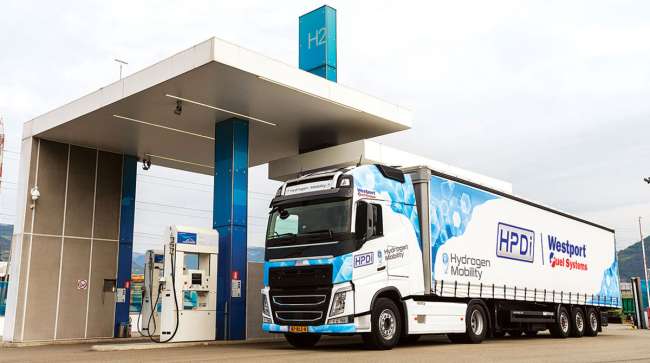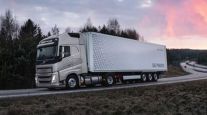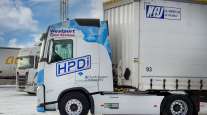Staff Reporter
Westport, Volvo Fuel System to Ink JV Agreements by January

[Stay on top of transportation news: Get TTNews in your inbox.]
Westport Fuel Systems Inc. expects definitive agreements for its high-pressure gas-injection fuel system joint venture with Volvo Group to be signed by the end of January at the latest, executives said.
Vancouver, British Columbia-based Westport and the Swedish truck manufacturer signed a nonbinding letter of intent for the joint venture in July.
The joint venture will be operational in the second quarter of 2024, interim CEO Tony Guglielmin said in a statement.
Westport will contribute its current high-pressure direct-injection (HPDI) assets to the joint venture, which it said in July aims to accelerate the commercialization and global adoption of the technology for longhaul and off-road trucking applications.
Today Westport Announces Hydrogen HPDI™ Project with a Leading Global Locomotive Original Equipment Manufacturer
Read the full press release:https://t.co/bUvcnQGF5W — Westport Fuel Systems (@WestportDotCom) November 6, 2023
The HPDI system uses natural gas and could use hydrogen, too, as the fuel source instead of diesel.
Westport is also working with an unnamed original equipment manufacturer to adapt the HPDI technology for locomotive engines, which also use diesel. Westport announced the deal Nov. 6 and said a two-year proof of concept project is expected to begin immediately and is fully funded by the OEM.
The first tests of the HPDI system on North American roads with heavy-duty trucks began in September. Part of a pilot project in Alberta, Canada, the “Linde LNG Project” will use European Volvo FH models with 460 Euro 6, 13-liter engines that can run on renewable bio-liquefied natural gas (biogas) or LNG and use Westport’s HPDI system.
Westport and Volvo made great progress on the joint venture in the third quarter, Guglielmin said as the company announced its results for the three months ending Sept. 30.
The company posted a net loss of $11.9 million for the most recent quarter, matching its net loss in the same quarter in 2022.
We announced our Third Quarter results, read the press release here:https://t.co/ADYJvdWIUr — Westport Fuel Systems (@WestportDotCom) November 8, 2023
Within the two sets of results, gross margin increased $1.9 million in Q3 on a rise in revenue, foreign exchange losses shrank by $1.2 million and research and development spending fell, although this was partially offset by a $4.3 million increase in general and administrative expenditures, much of it related to the joint venture.
Westport posted Q3 revenue of $77.4 million, up 9% year-over-year from $71.2 million. Increased sales volumes in the delayed OEM, electronics and fuel storage businesses and additional sales from the heavy-duty OEM business were partially offset by lower sales to customers in the light-duty OEM business.
The company’s delayed OEM business directly or indirectly converts new passenger cars for OEMs or importers, to address local market needs when a global LPG or CNG vehicle platform is not available directly from the OEM.
Westport works with many OEMs across its businesses, and both Volvo and its Canadian partner expect the joint venture to mirror this model.
Want more news? Listen to today's daily briefing above or go here for more info
“I can say with great confidence that Volvo’s on the same page here and want to make this joint venture a global leader in HPDI,” Guglielmin said during the company’s Q3 analyst earnings call.
“So, there’ll be other OEMs, obviously, that we intend to take it to and there’s a number of them that we’re talking to already who looked at this product,” he added.
“This is about getting up to scale and scaling the technologies and pulling out costs of a complete supply chain to make this technology even more and more affordable and attractive compared to alternative or competing technologies like fuel cells or electrification. That’s where the huge benefit is,” Guglielmin, the interim replacement for David Johnson, said.




